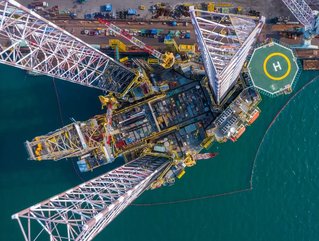Screws tighten around public oil and gas financing

At least 19 countries will make a commitment today at COP26 to stop the public financing of oil and gas projects abroad by the end of next year, according to reports.
The move will make it harder for countries to finance new oil and gas facilities, in line with warnings they are incompatible with net zero and climate warming targets, and follows a 50% decline in the market capitalisation of the top-listed oil and gas companies in the last two years.
"Like the wider economy, the financial conditions for energy-related companies have changed in 2020, in particular with top companies experiencing falls in market capitalisation steeper than those of equity benchmarks," notes the IEA.
Yesterday saw $130 trillion of private finance pledged to meet science-based net zero targets, although trillions of dollars of additional investment a year are needed to secure a low-carbon future and support countries already living with the impacts of climate change.
However, amid ongoing supply challenges and some recent robust results, upstream oil and gas investment is expected to rise by about 10% in 2021 as companies recover from the financial shock of COVID-19, even if spending will remain well below pre-crisis levels and is being outpaced by surging investment in renewable power.
Around 30 offshore oil and gas projects, as well as seven onshore developments and three coal mines, are currently in the pipeline across the UK (click here).
Countries have made new commitments to increase finance to support developing countries to deal with the impacts of climate change, including a commitment from Norway to triple its adaptation finance, commitments from Japan and Australia to double their adaptation finance, and commitments from Switzerland, the US and Canada for the Adaptation Fund.
The move sees the largest US adaptation finance commitment to date, to reduce climate impacts on those most vulnerable to climate change worldwide, while Canada has allocated 40% of its climate finance to adaptation.
New commitments for climate financing also came from the United Kingdom, Spain, Japan, Australia, Norway, Ireland and Luxembourg, that build on the plan set out ahead of COP26 to deliver the $100 billion per year to developing countries.
The 'Glasgow Breakthroughs' announced at the conference aim to cover the sources of more than 50% of global emissions by 2030, and delivering them could create 20 million new jobs globally and add over $16 trillion across emerging and advanced economies.
- Power Clean power is the most affordable and reliable option for all countries to meet their power needs efficiently by 2030
- Road Transport Zero emission vehicles are the new normal and accessible, affordable, and sustainable in all regions by 2030
- Steel Near-zero emission steel is the preferred choice in global markets, with efficient use and near-zero emission steel production established and growing in every region by 2030
- Hydrogen Affordable renewable and low carbon hydrogen is globally available by 2030
- Agriculture Climate-resilient, sustainable agriculture is the most attractive and widely adopted option for farmers everywhere by 2030
Globally, the IEA predicts that with existing policies, oil demand will peak around 2030.
The key issue in a post-COVID-19 market risk assessment should not be peak demand but peak investment, where upstream investment will not return to previous levels, states a BCG report. An analysis by the IEF, in partnership with BCG, suggests that industry investment will have to rise over the next three years by at least 25% yearly from 2020 levels to stave off a crisis.






